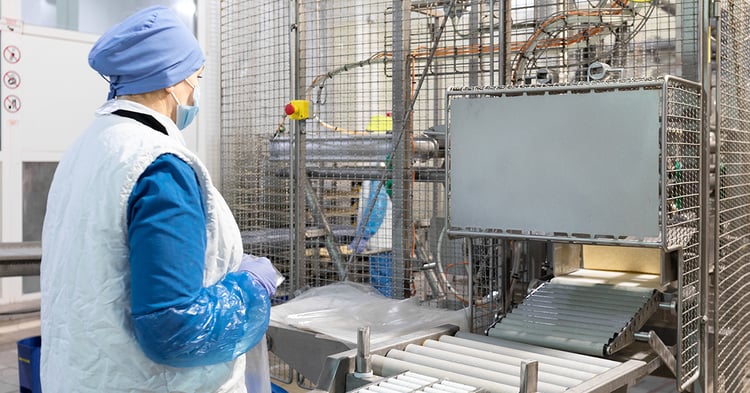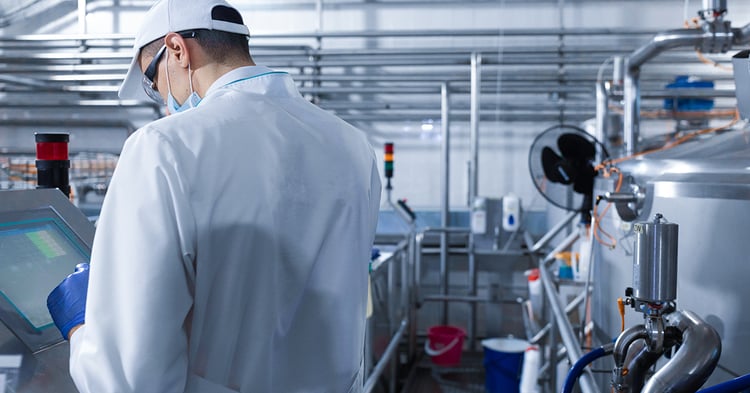![]()
In the current technological age, more industries are trying to find digital solutions to optimize their work. Companies are developing and shifting towards more intelligent machines that are helping enhance their businesses. By choosing these smarter solutions, companies are gaining access to software that can make their operations more efficient.
One industry that has welcomed these digital solutions is manufacturing. At one point, the industry has leaned on digital systems that can improve the manufacturing process. Those factories that have integrated various technologies are now called intelligent factories, more commonly known as smart factories.
In this article, we’ll expand on what smart factories are and what these digital changes mean for the manufacturing industry. Read more below.
What Is a Smart Factory?
A smart factory is a highly digitized shop floor that is integrated with different combinations of modern technologies to optimize how a production line works. Most people think of it as a concept that describes the application of technology for factories to have self-adapting manufacturing capabilities. Smart factories involve production, information, and communication technologies.
Smart factories connect the physical and digital worlds to help track the entire production process. Each manufacturing component is connected and can continuously share data with centralized dashboards. These data can be used to enhance production processes, boost productivity, and reduce waste. Additionally, smart factory components can address some of the production issues and give valuable insights into the state of production.
Smart factories are where a network enables the machine and logistics chain to happen without human intervention. It is a place where the exchange of data is crucial to manufacturing operations. Every digital connection leads to machine learning so that manufacturing can be more efficient.
How do Smart Factories Affect the Manufacturing Industry?
Smart factories aren’t being integrated into the manufacturing industry just to digitize processes. They are being introduced because of the many benefits they can contribute to the overall manufacturing process. The presence of smart factories continues to provide a dynamic production environment that is efficient and reliable.
Smart factories have also upgraded the roles of humans in the production process. The use of software has allowed digital technologies to take care of tedious tasks while leaving more complex jobs for humans. Communication and monitoring are also far better than how it was before.
In addition, smart factories have affected:
- Sensor Technology. Sensor technologies are vital to running a smart factory. While the manufacturing industry already had existing sensors used for material handling, a smart factory maximizes the use of sensor technologies. Often, intelligent sensors and motors are used for data collection to monitor production processes. To give an example, there are some sensors that can deliver subtle warning signals when a machine needs to be maintained or when personnel needs to attend to production problems.
- Production Monitoring. Every manufacturing process is tracked. With a smart factory, the technologies can concentrate on tracking all operations – including isolated pieces of equipment. Moreover, a smart factory collects these data to enhance supervision on the shop floor. Production tools are also more controlled to be less prone to human errors and to reduce downtimes.
- Flexible Production. As times change, manufacturing needed to adapt to consumer demands. The proven trend now is to have flexible manufacturing processes to accommodate customizations. With the smart factory, production flexibility is easy and it is easier to cater to the ever-changing needs of consumers. Machines are also easier to reconfigure and retool to maintain production efficiency when there is a need for updated manufacturing processes.
- Communication and Visibility. For the longest time, the shop floor has always felt disconnected. With a smart factory, these walls crumble and operators are granted full visibility of the production line. This helps optimize logistics and asset usage. As the smart factory also monitors, tracks, and relays real-time data, those on the top level can make better decisions on how they can efficiently run the shop floor.
- Employee Safety. Despite being fully automated, a smart factory still requires the human touch. As such, it is made to be employee-friendly, even if the technology is self-driven. A smart factory can control and predict the production workspace and can monitor the threats that can affect the way humans work. With this, employees are always informed about possible problems and irregularities to prevent them from happening. This also safeguards them as the smart factory tracks the workers and warns them of potential work hazards.
- Manufacturing Jobs. In connection with the point above, the smart factory also improves the roles available to humans in the manufacturing industry. With a very intelligent system, the smart factory can automate easier tasks leaving behind the challenging ones for humans to tackle. This makes their job more fulfilling and enjoyable. Additionally, a smart factory also creates new opportunities within the industry since companies must find new talents that are digitally competent to run various technological components that exist within the smart factory.
Start Your Smart Factory Journey
As a concept, smart factories seem too good to be true. They can enhance traditional manufacturing processes and they can make your shop floor more efficient. In reality, they can do that and so much more. Smart factories create digital and intelligent factories that are capable of automating tedious tasks. They can also elevate how people do their jobs because they are left with complex and challenging tasks. Additionally, smart factories make a factory safe and orderly because everything is tracked and monitored.
In a world where there is a heavy emphasis on digitization, smart factories can change the way manufacturing works – for the better. It doesn’t replace humans, but it does make things easier for them. Smart factories are flexible and can easily adapt based on what consumers want. Having digital solutions within the manufacturing process takes what the industry can do to the next level.
For more questions and inquiries on what a smart factory is and how you can start your digital transformation, LiveTracking is here to help. Contact us below.


